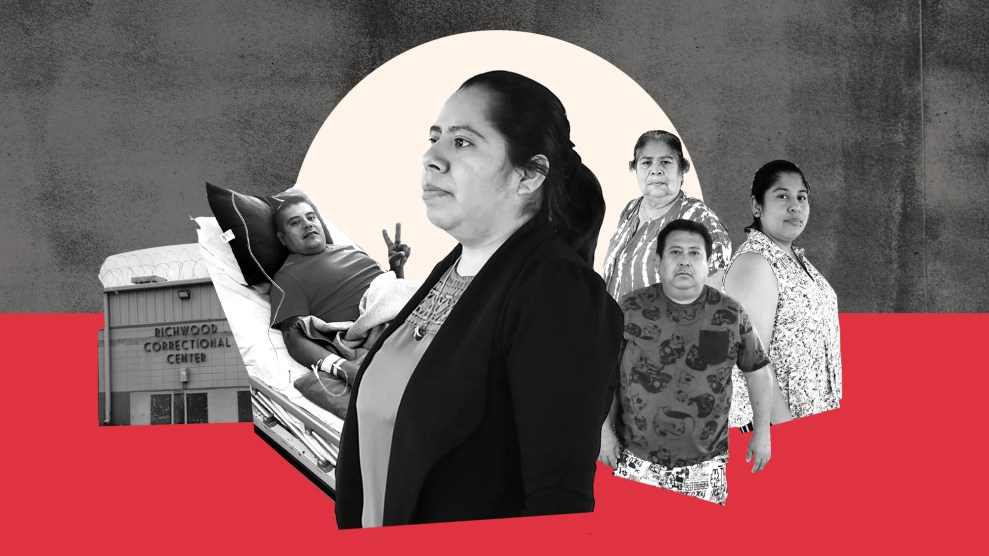
Mother Jones illustration; Photos courtesy of Margarita Albarrán Luna
On April 13, Raúl Luna González told his sister Margarita Albarrán Luna that he was trying to hide symptoms of COVID-19 from the staff of the Louisiana immigration detention center where he was being held. People with fevers at the Richwood Correctional Center were being moved to solitary confinement while they awaited test results. Luna had survived too much to risk dying alone in a cell: colon cancer, a kidnapping in Mexico, and a year in detention, a grim milestone he’d just passed.
When they spoke later that week, Luna was feeling worse. He said he’d call back the following day. Then he went silent. As Albarrán tried to find out what had happened to her brother, the number of COVID-19 cases at Richwood rose to 20, the most of any detention center in the country to that point.
Luna’s attorney had been pleading with ICE to release Luna but had received no response. So Albarrán took matters into her own hands. Although she and her older brother shared an impoverished upbringing in a Mexican village, her life had gone down a path that afforded her privileges far beyond his reach. After coming to the United States without authorization as a 13-year-old, she’d gained protection from deportation and the right to work under the Obama administration’s Deferred Action for Childhood Arrivals program. After Luna found himself trapped by President Trump’s detention regime, she marshaled her relative security, unusual tenacity, and all the financial resources she could muster to try to get him out.
It wasn’t just Luna who depended on her. Albarrán’s mom, two more siblings, and a nephew had also sought protection from the cartel that kidnapped Luna and had landed in detention in Arizona. As five of her relatives endured indefinite confinement, Albarrán racked up nearly $55,000 in legal fees to save them from deportation, going into debt in the process. Now she had to protect them from a pandemic that was threatening to tear through crowded detention centers.
Luna, with his medical history and his worsening symptoms, was the priority. With no word from Richwood, Albarrán called a Telemundo reporter who had been speaking to Luna for a story and issued an ultimatum. “If you don’t get the news out today,” Albarrán recalls saying, “I’m going to contact Univision.” The segment aired that evening. (A Telemundo producer says the station was planning to broadcast the segment regardless and does not recall an ultimatum.) Later that night, a Richwood detainee called Albarrán. Her brother, he told her, had been taken to the hospital struggling to breathe.
Before Luna was kidnapped last year, the two siblings led largely parallel lives. When Luna was just 9 and Albarrán was still a toddler, he left the family’s 500-person village to try to make a living in Acapulco. He struggled to find work and slept on cardboard scraps on the streets, resentful that his parents did not come to find him. When he was 17, he tried to cross the border to join his stepbrother Antonio in Denver. Border Patrol agents caught him 14 times before he made it.
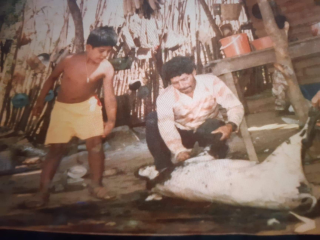
Margarita Albarrán
Albarrán’s time in the United States was easier from the start. In 2001, she drove across the border with some of Antonio’s friends using someone else’s papers and arrived in Denver.
Albarrán and Luna were back in the same place for the first time since she was 2, but they spent little time together. Luna got married and started a family. Antonio, meanwhile, raised Albarrán like a daughter. “I give you everything,” he told her. “You just give me good grades.” By Albarrán’s senior year of high school in 2006, she was taking university courses. After the first term, the university requested the Social Security number she didn’t have, ending her dreams of a college degree.
Luna and his wife returned to Acapulco with their three kids in 2009. After they divorced, Luna came back to the United States in 2011, this time with a fake US passport. He was caught, detained for six months in a federal prison, and deported. Back in Acapulco, he ran a butcher’s shop and began attending law school. Luna was distant from his family—Albarrán wasn’t even his friend on Facebook—but he’d escaped the poverty he knew as a child.
That stability ended when he was diagnosed with colon cancer in late 2015. His mom, María del Carmen, and sister María del Rocío, who had been living in the United States, returned to Acapulco to support him. He beat the cancer, but the surgery left him dependent on a colostomy bag.
Luna went back to working at his butcher’s shop and paying protection money to the powerful Jalisco cartel that had helped turn Acapulco into one of the world’s most dangerous cities. In his spare time, he obsessed over a vintage Volkswagen Beetle named Dracula that he buffed to a gleaming red. But when cartel members started asking him to identify friends from the car scene for them to extort, he refused.
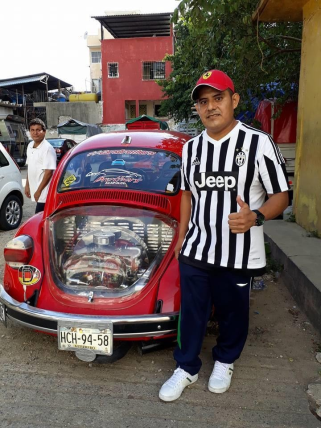
Margarita Albarrán
On February 18, 2019, five men showed up at a car repair shop to abduct him. He recognized two of them as the cartel members who had collected the protection money. The men drove Luna into the hills of Acapulco, where they drugged him and shocked him with cables hooked up to a battery. The leader told one of the men to get a saw, machetes, and coolers, Luna later wrote in a declaration supporting his relatives’ cases for asylum.
The police, generally impotent in the face of cartels, told María del Rocío there was nothing they could do to help. When Albarrán heard that, she called the police from the United States and got them to transfer the case to a special kidnapping unit.
Investigators started recording calls in which the kidnappers demanded Luna’s Jeep, a gold chain, and 80,000 pesos, about $3,600, in exchange for his freedom; otherwise, he’d be returned to his family in pieces. The family paid most of the ransom, but the cartel members continued to hold him until he offered to pay more protection money and find targets for them to kidnap—promises he had no intention of keeping.
The police arrested three of the kidnappers after Luna was released—an unusually diligent effort in a country where the vast majority of murders go unsolved. But the cartel was likely to retaliate against Luna and his family for the arrests. The investigators suggested that Luna seek protection in the United States, according to Albarrán. Luna hoped that the hundreds of pages of documentation of the kidnapping compiled by the investigators would help him make his case for asylum.
Three days after his release, Luna left for the border. He was right to fear reprisal: The cartel had already begun calling María del Rocío, warning that it would kill her brother. On April 12, 2019, Luna walked up to the US border station on the Paso del Norte bridge between Ciudad Juárez and El Paso. “Good afternoon,” he told a US official. “My name is Raúl Luna González, a Mexican citizen, and I’m here to ask for asylum.”
Four of Luna’s relatives—María del Carmen, María del Rocío, a brother, and a nephew—asked for protection at another border crossing two months later. All five were placed in detention.
Luna’s time in the United States began in the hieleras, or iceboxes, where migrants are supposed to spend no more than 72 hours because they are transparently inhumane: The lights never turn off and people rely on Mylar space blankets for a minimum of warmth. During his seven days at the Texas holding center, Luna developed an infection after he complained that officials were ignoring his requests to let him clean out his colostomy bag. He was hospitalized for the first of many times in US custody. (Customs and Border Protection, which oversees the hieleras, declined to comment.)
In June, after being sent to two other detention centers, he arrived at Richwood, a jail run by the for-profit prison company LaSalle Corrections. Richwood had housed criminal inmates until Louisiana undertook reforms to reduce its incarcerated population. Immigration and Customs Enforcement, which was detaining ever more people under Trump’s border crackdown, swooped in to fill the void, signing contracts for beds at Richwood, three other LaSalle jails, and a LaSalle prison. Luna and his fellow detainees slept on double- and triple-level bunks in cramped units that held more than 100 people.
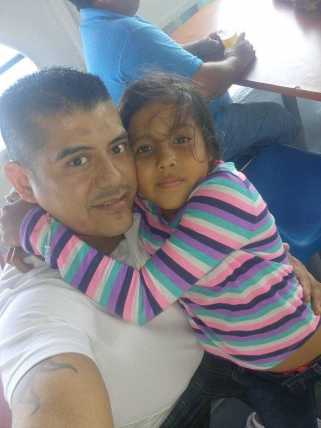
Raúl Luna
By this point, Albarrán had already been fighting for his freedom for months. Even before he arrived at the border, she met with an immigration lawyer near her home outside Seattle to discuss her brother’s legal options. She had the resources to do so: After eight years working at McDonald’s as an undocumented immigrant, she’d gained a temporary work permit through the DACA program created in 2012, allowing her to take a job as a teller, and then as a banker, at Wells Fargo. But her status remained precarious: In 2017, the Trump administration announced it was getting rid of DACA. Several courts blocked the move, and the case made its way to the Supreme Court. Albarrán knows that a decision upending her life could come any day.
Even with money, Albarrán struggled to find local lawyers to help Luna in Louisiana, whose few immigration attorneys were already overwhelmed by the state’s swelling detainee population. There weren’t nearly enough local immigration judges either, so asylum seekers had to make their case over video to judges elsewhere in the country. Luna’s initial asylum hearing was scheduled for September, but it got pushed back at the last minute to November.
As he waited, Roylan Hernández Díaz, a Cuban friend at Richwood whom Luna had first met in detention in Texas, learned that his final court date wouldn’t happen for nearly four months. Hernández told his wife he couldn’t endure more time at Richwood and declared a hunger strike on October 10. Five days later, he died in solitary confinement by apparent suicide. The next morning, another Richwood detainee attempted suicide. On their daily calls, Albarrán pushed Luna to keep fighting. “Don’t give up,” she said. “I’m here for you.”
In the meantime, an immigration judge granted asylum to María del Carmen and María del Rocío. It showed the strength of the family’s case—only about 3 percent of detained Mexican immigrants win asylum—and of Albarrán’s efforts. She had spent $20,000 of her savings and $10,000 her father had given her to get top-tier representation from Green Evans-Schroeder, an Arizona law firm. The lawyers had hundreds of pages of police reports and ransom calls translated into English and brought in the author of a new book on Mexicans sent back by the United States (titled Deported to Death) to provide expert testimony. Albarrán also spent countless hours assembling documents for the lawyers, a task she sometimes delegated to her 13-year-old daughter, who now thinks she may become an immigration attorney.
It wasn’t enough to get her relatives out. Immigration and Customs Enforcement appealed the judge’s asylum decision and kept María del Carmen and María del Rocío in detention.
Around the same time, Albarrán stopped hearing from her brother. She called Richwood.
“What’s going on?” she asked.
“He’s no longer in here,” a Richwood official responded. The official told her to call ICE.
An ICE official told Albarrán her brother was about to be deported. That would be illegal: Luna was still awaiting his court hearing. If you put him on that plane, Albarrán warned, “I’m going to sue you.” Soon, Albarrán got a call from her brother. He was no longer going to be deported, but he had been transferred to another Louisiana detention center. On the day of Luna’s November 20 hearing, the judge learned that Luna wasn’t at Richwood. He rescheduled for January. That meant Luna was going to have to spend nine months in detention waiting for a hearing that would last a few minutes. (ICE spokesperson Bryan Cox denied that Luna was on the verge of being deported but did not respond to follow-up questions.)
Meanwhile, his physical and mental health deteriorated. He cleaned his colostomy bag in the sink, where he had trouble controlling the water temperature and frequently scalded his intestines. When he got infections, he had to buy antibiotics from the commissary because the infirmary didn’t provide them. Finally, Luna was prescribed Prozac and Vistaril, a sedative for treating anxiety and insomnia. (“LaSalle Corrections provides high quality medical services in safe, secure, and humane residential environments,” company executive Scott Sutterfield said in an email, “and our company strongly refutes allegations to the contrary.”)
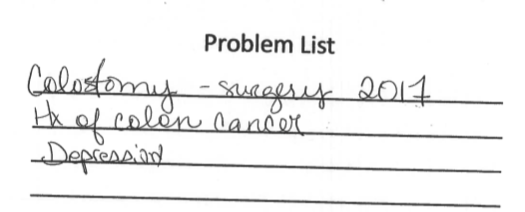
One infection sent him to the emergency room of a nearby hospital in December. In the waiting room, he sat with his legs shackled and his hands chained to his waist. The shackles frightened a little boy who asked his mom why Luna looked like that. She told her son the man was a criminal but that there was no reason to be afraid since he was cuffed and under guard. Luna began to cry, something he hardly ever did.
He was eligible to be released at any time. But under Trump, ICE was keeping nearly all asylum seekers locked up while they awaited hearings. Luna’s first attorney in Texas took no action; Albarrán accuses him of stealing $7,000. In November, she hired Rozas & Associates, a Louisiana law firm. For months, the firm sent requests to ICE to release Luna but received no response.
Then the coronavirus struck. On March 17, Rachel Chappell, a Rozas attorney, filed an emergency request to release Luna to protect him from COVID-19. There weren’t any known infections at Richwood yet, but public health experts were predicting that it was only a matter of time before detention centers were overrun. With his cancer history, Luna was at particular risk. “The effect of his exposure to this virus could be deadly and given what little information we have about how to test, treat, and control this outbreak, we ask that ICE consider his parole case a priority [of] the highest order,” Chappell wrote to ICE. No response.
On March 27, Luna appeared by video before Mary Baumgarten, a judge in upstate New York. Britton Evers, a Baton Rouge attorney, was standing in for Chappell that day. He’d just filed the paperwork to represent Luna and was new to immigration law.
To qualify for asylum, a person must belong to an identifiable group that faces persecution. Baumgarten asked which group Luna belonged to.
“I’m going with affluent Mexican businessmen,” Evers replied.
“Affluent Mexican businessmen? she asked. An appeals board had rejected a similar line of argument more than a decade earlier.
“The Court…does not question that respondent was kidnapped and held essentially for ransom by the cartel,” Baumgarten said. Then she rejected his application for asylum.
Luna vowed to appeal, knowing COVID-19 could reach Richwood any day. “Please, we’re human beings,” he pleaded with ICE officers at Richwood. “We’re going to die here.” The officials replied that the detainees were safer inside the facility than with their families, even though ICE was starting to release hundreds of detainees vulnerable to COVID-19 from facilities around the country.
Luna’s mom was released in March. Albarrán’s brother Plácido was released the next month. (María del Rocío would be released in May after ICE lost its appeal.)
At Richwood, Luna was growing increasingly nervous about the pandemic. He asked guards why they weren’t wearing masks. He didn’t know that LaSalle was prohibiting its employees from wearing them in hopes of preventing panic among people in detention. The ban wasn’t lifted until April 8, after the Associated Press asked about it. Two days later, ICE confirmed the first COVID-19 case at Richwood.
Albarrán urged her brother to keep to a corner of his room, away from others. But Luna said social distancing was impossible in a crowded dorm where everyone used the same toilets and showers. For Albarrán, the reality set in that her brother was probably going to be infected, despite everything she’d done. To hire the lawyers in Arizona and Louisiana, she’d borrowed money from friends, racked up enough credit card debt to seriously damage her credit score, and gotten a loan to help cover all the legal fees. (A judge denied asylum to Plácido and his son, who is still detained, earlier this week; Albarrán plans to spend even more on their appeals.)
On April 15, Chappell emailed ICE’s top official for the region, “I urge you to please grant this Respondent humanitarian parole. His cancer destroyed his immune system and he is therefore immunocompromised.” Unbeknownst to Chappell, the virus was already spreading through Luna’s body.
Luna was experiencing aches, fever, and difficulty breathing. Albarrán told him he had to stop hiding his symptoms from the guards. “Don’t be stupid,” she said. “You need to let them know that you’re sick.”
Later that week, Albarrán stopped hearing from Luna. During that period, men who’d shared a dorm with Luna told me the coronavirus outbreak was far worse than the three cases ICE was reporting at the time. A Guatemalan man said he had spent three nights in solitary without medical attention after developing a fever. “They put you in there,” he said, “and you live or you die.” Then, he said, he was sent back to his dorm without being tested.
Desperate for action, Albarrán went to Telemundo, which aired its segment about Luna on April 18, the same day Luna tested positive for COVID-19 and found himself struggling to breathe. Before the jail sent him to the hospital, guards shackled him again. “Are you serious?” Luna asked. “You’re going to handcuff me? I can’t walk. I’m fighting for my life.”
Luna was released from the hospital that same day and sent back to Richwood. He was placed in a dorm with about 40 other people who had tested positive.
He called Albarrán, but his cough made it hard for him to talk, and the call was brief. Then he disappeared again. ICE told neither Albarrán nor Chappell where Luna was, and a spokesperson didn’t respond when I asked whether he’d been hospitalized again. As Albarrán tried to find her brother, Carl Lenard, a 62-year-old guard at Richwood, died of complications from COVID-19.
After nearly a week of silence, Luna called Albarrán to say he’d spent five nights in the hospital. He’d just been returned to the infected dorm again. The next day, Albarrán arranged for Luna to call me, and we spoke for the first time. We’d talk again the next night, both calls punctuated by coughing. He compared Richwood to a Nazi concentration camp.
Before his most recent hospital stay, Luna told me, he’d sat in a chair barely able to breathe or walk. How is it possible that I’m going to die in a prison after being treated like an animal? he asked himself. Without saying goodbye to my kids? Without having done anything wrong? He arrived at the hospital on a stretcher, handcuffed again. He described being left in a room for nine hours without medical attention as he used all his energy to breathe.
Hours after I first talked to Luna, Lieutenant Stanton Johnson became the second Richwood employee to die after contracting COVID-19. Johnson had often done favors for Luna and sat down on his bunk to chat. Johnson told Luna he was sorry about how the detainees were being treated at Richwood. He called Luna “counsel” out of respect for time he spent in law school in Mexico.
As news of Johnson’s and Lenard’s deaths spread, a colleague of Chappell’s sent another urgent request to an ICE official, and the Southern Poverty Law Center mentioned Luna’s case in a letter to the head of ICE highlighting “egregiously unacceptable conditions” at Richwood.
Three days later, an ICE officer called Chappell. Luna’s request to live with a niece in El Paso, a US citizen, was being granted. The official offered no explanation. Cox, the ICE spokesperson, says the agency decided to release Luna following “an evaluation of his case specifics based upon the totality of the circumstances, which includes medical conditions.”
On a Sunday morning, after flying to Dallas and driving to Louisiana, Albarrán sent me a photo from outside the Richwood Correctional Center, with the caption, “Waiting to finally see my brother.”
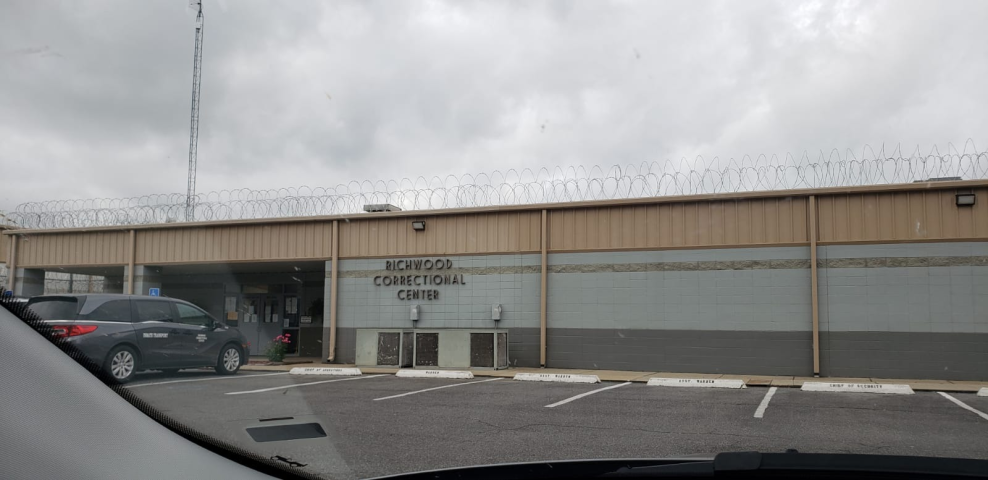
When Luna left Richwood, he counted 49 people still in the infected dorm, and more were arriving. (Sixty-five people at Richwood have now tested positive. According to ICE, all of them have recovered or been released.) A guard told him he’d have to leave the jail in his khaki uniform and orange slippers because his clothes had been lost. “I don’t care,” Luna said. “Just open the door. I want my freedom. I want to feel the warmth. I want to breathe fresh air. I don’t want to spend one more second here.”
He shouted with joy when he saw his sister. They got into her car, and he said, “Vámonos, Margarita. Vámonos.” Let’s go. As they drove away and he saw the jail behind him, he wondered what would become of his friends who were still inside.
They stopped at a gas station so Luna could clean out his colostomy bag. Thirty minutes later, he wanted another bathroom break. Albarrán suspected it was just a pretense to spend more time walking without shackles—to absorb that it was real. They stopped at a restaurant and ate fajitas that Albarán called “the worst food ever” and Luna considered the best thing he’d ever eaten.
They had 13 hours of driving ahead to catch up on nearly a decade apart. After cancer, a kidnapping, and detention, Luna, who no longer had COVID-19 symptoms, could now add the coronavirus to the list of things his family had helped him through. Luna knew that he’d have been deported to Mexico long ago if it hadn’t been for Albarrán’s efforts and his own endurance.
Luna had come to see his sister, six years his junior, as a second mother. He told her he wouldn’t be distant in the way he’d been as a young man. When he needed help, it was his family, not his friends, who had come to his aid, he said. “Why keep running from that?” Luna asked.
“I’m glad you noticed,” Albarrán said as they drove toward El Paso, the city where Luna had requested asylum 387 days before. Their futures were now in the hands of two courts—an immigration appeals board for Luna and the Supreme Court for Albarrán—that Trump had stacked against them with judges loyal to his agenda. Their odds weren’t great. But for that moment, as they drove across Texas and day became night, they were together.














